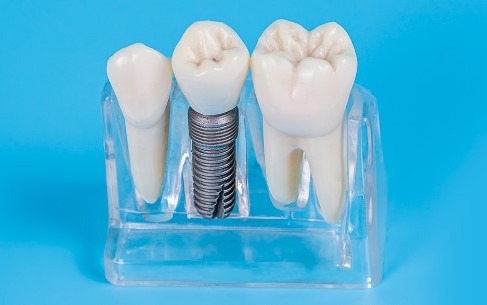Losing a tooth can be a very challenging experience. Whether it’s due to decay, injury, or another reason, the gap left behind can affect both your smile and the function of your mouth. For many, the next step after losing or noticing a missing tooth is to get permanent replacement teeth. One of the most effective solutions is getting a dental implant. But how long do you have to wait after an extraction before you can get an implant? Let’s break down the timeline and process.
Immediate Implants: The Fast Track to a New Smile
In some cases, placing a dental implant immediately after a tooth is extracted is possible. This process is called “immediate implantation.” It’s ideal for those who want to minimize their time with a gap in their smile. Immediate implants are most successful when the surrounding enamel and bone are healthy and robust enough to support the new implant.
However, only some are candidates for immediate implants. Your local dentist will evaluate the health of your gums and jawbone health to determine if this option suits you. If there is an infection or the bone density is insufficient, immediate implantation might not be recommended.
Early Implants: A Balance of Speed and Healing
For those who are not suitable candidates for immediate implants, an early implant placement may be the best option. This usually takes place about 2-3 months after the extraction. During this time, the socket left by the extracted tooth begins to heal, but it hasn’t completely closed. Placing an implant during this period can allow for better integration with the jawbone while ensuring a relatively quick restoration of your smile.
The timing for early implants hinges on proper healing and the absence of infection. If you choose this route, regular check-ups with a dentist near you will ensure that your mouth is healing well and the site is ready for the implant procedure.
Delayed Implants: Giving Your Mouth Time to Recover
Sometimes, a more extended healing period is necessary before placing a dental implant from a dentist near you. This is known as delayed implantation, typically 4-6 months after the tooth extraction. This extended timeline allows the bone and gum tissue to heal fully, reducing the risk of complications. Delayed implants are often recommended if there is significant infection or bone loss during the initial tooth extraction.
Although waiting longer for an implant might not be ideal for those eager to restore their smile quickly, it can sometimes lead to better long-term outcomes. When the jawbone and
gums fully heal, the implant can bond more securely with the bone, creating a stable foundation for permanent replacement teeth.
What to Expect During the Healing Period
Whether you opt for an immediate, early, or delayed implant, the healing period of enamel is crucial for the procedure’s success. Excellent care and maintenance of your oral health during this time can make a significant difference. Here are some key points to consider:
- Maintain Oral Hygiene: Keeping the area clean is essential. Follow your local dentist’s advice on brushing and flossing around the extraction site without disrupting the healing tissue.
- Avoid Hard Foods: Stick to soft foods that won’t irritate the extraction site. Hard or crunchy foods could dislodge the clot or cause further damage.
- Regular Check-Ups: Visiting a dentist near you regularly for check-ups will ensure that your healing is on track. Any signs of infection or slow healing can be addressed promptly.
- Monitor Healing: Attention to unusual pain, swelling, or bleeding. While some discomfort is normal, persistent or severe symptoms should be reported and discussed with your dentist immediately.
The Benefits of Dental Implants
Getting Dental implants near your area is considered one of the most effective methods for replacing teeth. Unlike dentures or bridges, implants are designed to integrate with the jawbone, providing a sturdy foundation for permanent replacement teeth. They look, feel, and work like natural teeth, allowing you to eat, speak, and smile confidently.
Furthermore, dental implants help preserve the jawbone. With a lost tooth, the bone around the missing tooth can deteriorate, exposing the enamel. Implants stimulate the bone, much like a natural tooth would, preventing this bone loss and maintaining the structure of your face.
Choosing the Right Time for Your Implant
You are deciding when to get an implant after a tooth extraction done by a dental expert near you. Several factors are involved in deciding the right conditions and time for an implant to be considered relevant and safe.
Factors like the condition of your enamel, the well-being of your gums, and the strength of your jawbone all play a role in determining the ideal timing. A consultation with a dental professional at Espire Dental will provide a personalized treatment.
Ready for a Fresh Start? Plan and book your implant appointment!
Restoring your smile with a dental implant after a tooth extraction is a journey that involves careful planning and consideration. Whether you choose immediate, early, or delayed implantation, the goal is to get a healthy, functional, and confident smile. By working closely with a dentist near you, you can navigate the process smoothly and choose the best option for your oral health.
Don’t wait any longer to fill the gap in your smile. Discover the best options for dental implants near you and begin your journey towards a confident smile.



.svg)


